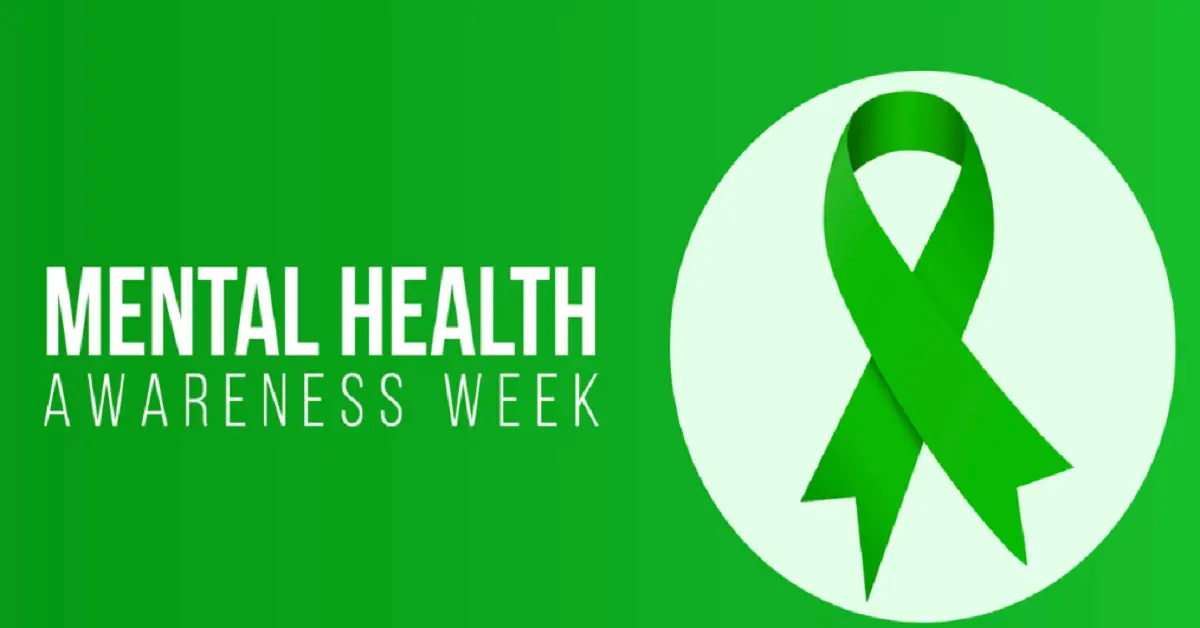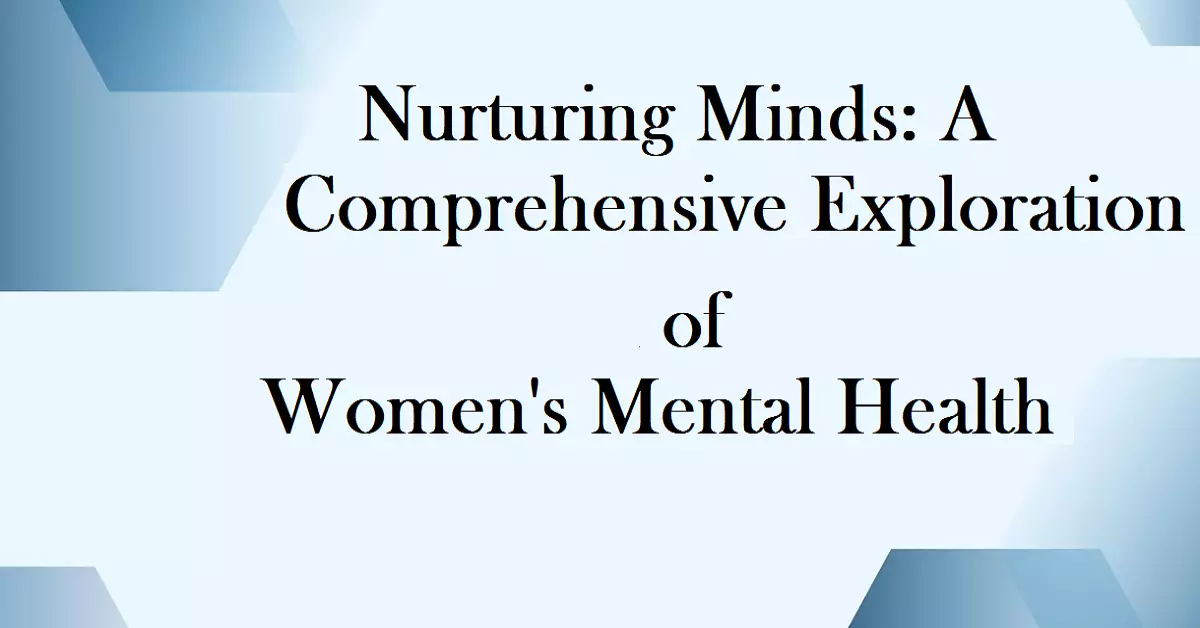Mental Health Awareness Week: Nurturing Understanding and Breaking Stigmas for a Healthier Tomorrow
Introduction
Mental health is a critical aspect of overall well-being, encompassing emotional, psychological, and social stability. It plays a pivotal role in how individuals think, feel, and act, influencing their ability to handle stress, relate to others, and make decisions. Recognizing its significance is vital for fostering a healthy and resilient society. Across the globe, mental health issues are pervasive, affecting millions of individuals and communities. To address this, Mental Health Awareness Week serves as a crucial initiative, aiming to shed light on mental health, challenge stigmas, and promote open conversations. Understanding the historical context of this awareness week reveals its roots in advocacy movements and societal perceptions.
Challenges in Mental Health Advocacy
While Mental Health Awareness Week has undoubtedly made significant strides, persistent challenges underscore the complexity of mental health advocacy. One critical hurdle is the lingering resistance embedded in cultural and societal norms. Mental health, often relegated to the shadows of public discourse, still grapples with outdated perceptions and myths. Overcoming these entrenched attitudes requires a nuanced approach that acknowledges cultural diversity while fostering a collective understanding of mental health as a universal concern.
Media plays a pivotal role in shaping public perceptions, and its influence on mental health narratives cannot be overstated. The portrayal of mental health in popular media has historically been riddled with stereotypes and misinformation. Harnessing the power of media to accurately depict mental health struggles and recovery is a crucial aspect of advocacy. Collaborations between mental health organizations and media outlets can help reshape narratives, dispel myths, and contribute to a more informed and empathetic public.
The Intersectionality of Mental Health
The call for intersectionality in mental health advocacy emphasizes the need to recognize the diverse range of experiences within various communities. Cultural, socioeconomic, and identity factors intersect with mental health, influencing how individuals perceive and navigate their well-being. Efforts to address mental health disparities must acknowledge these intersections, tailoring interventions to the specific needs of different demographic groups.
Cultural competence in mental health initiatives is paramount. Recognizing that mental health is perceived and addressed differently across cultures fosters an environment of inclusivity. Cultural competence involves not only understanding diverse perspectives but also adapting strategies to resonate with varied cultural contexts. Mental Health Awareness Week, as a global event, has the potential to highlight these diverse experiences and encourage a more inclusive conversation around mental health.
Personal Stories and Testimonials
The potency of personal narratives in diminishing stigma and fostering connection cannot be overstated. Sharing personal stories creates a humanizing effect, eroding the barriers of judgment and fostering empathy. These narratives serve as a testament to the resilience of individuals facing mental health challenges and provide a source of inspiration for others. Mental Health Awareness Week provides a unique platform for amplifying these voices, offering a space where individuals can bravely share their stories, contributing to a collective narrative that challenges misconceptions and encourages solidarity.
The diversity of mental health experiences underscores the need for a broad spectrum of stories. In sharing narratives from various cultural backgrounds, gender identities, and life experiences, Mental Health Awareness Week can contribute to a more comprehensive understanding of the nuanced nature of mental health. It becomes a powerful tool in dismantling stereotypes and highlighting the universality of the human experience, including the struggles and triumphs associated with mental health.
The Scope of Mental Health Issues
Common mental health disorders such as anxiety, depression, and schizophrenia impact individuals on a global scale. Statistical data emphasizes the burden of these issues, highlighting the need for comprehensive approaches to address mental health challenges. Societal factors, including economic disparities, discrimination, and access to healthcare, contribute to the complexity of mental health issues.
The Stigma Surrounding Mental Health
Stigma, in its various forms, poses a significant barrier to mental health awareness and treatment. Individuals facing mental health challenges often endure discrimination, prejudice, and misconceptions, preventing them from seeking help. Understanding the profound effects of stigma is crucial for dismantling barriers and creating an inclusive environment for those with mental health issues.
The Role of Mental Health Awareness Week
Mental Health Awareness Week pursues multifaceted objectives, including raising public awareness, breaking down stigmas, and fostering open conversations. Themes developed over the years reflect the evolving societal landscape, contributing to broader discussions on mental health. Through workshops, community outreach, and digital campaigns, the week engages diverse audiences and collaborates with mental health organizations.
Global Impact and Success Stories
Successful campaigns during Mental Health Awareness Week have led to positive changes in public perception and attitudes. These efforts have influenced legislative and policy changes, demonstrating the real-world impact of awareness initiatives. Despite these successes, ongoing challenges persist, requiring continued advocacy efforts.
Challenges in Mental Health Advocacy
Barriers to mental health awareness include cultural and societal resistance, often perpetuated by media narratives. Addressing these challenges requires a nuanced approach that considers diverse perspectives and experiences. Advocacy efforts must confront and dismantle these barriers to create a more supportive environment.
The Intersectionality of Mental Health
Recognizing diverse experiences and addressing mental health disparities are crucial for effective advocacy. Incorporating cultural competence in awareness initiatives ensures that the complexities of mental health are understood within various cultural contexts, promoting inclusivity and understanding.
Personal Stories and Testimonials
Personal narratives play a powerful role in reducing stigma by showcasing the diversity of mental health experiences. Sharing stories fosters empathy and understanding, creating connections that challenge stereotypes and encourage support for those facing mental health challenges.
The Future of Mental Health Awareness
Emerging trends in mental health advocacy, including the use of technology and innovative approaches, signify a dynamic future. Education remains a cornerstone for sustaining awareness efforts, empowering individuals to contribute to a society that prioritizes mental health.
The Future of Mental Health Awareness
As we peer into the future of mental health awareness, several emerging trends and considerations shape the trajectory of advocacy. Technology, in its ever-advancing form, offers new avenues for reaching individuals in need. Virtual mental health platforms, teletherapy, and mental health apps democratize access to support, providing a lifeline for those who may face geographical or social barriers to traditional mental health services. However, ethical considerations, data privacy, and the equitable distribution of these technologies remain critical concerns that demand careful navigation.
Innovation extends beyond technological solutions. Holistic approaches that encompass physical health, social connections, and environmental factors are gaining prominence. Recognizing the interconnectedness of these elements reinforces the understanding that mental health is a dynamic interplay of various influences. Mental Health Awareness Week can serve as a platform to explore and promote these integrative approaches, fostering a more comprehensive view of well-being.
Education as a Pillar of Sustainability
Education emerges as a linchpin in the sustainability of mental health awareness efforts. Integrating mental health education into formal curricula equips future generations with the knowledge and skills necessary for navigating their mental well-being. Beyond schools, workplace training programs and community workshops contribute to a culture where mental health is not only acknowledged but actively prioritized.
Education also plays a pivotal role in dispelling myths and fostering a nuanced understanding of mental health. Debunking common misconceptions and providing accurate information equips individuals to challenge stigma and contribute to a more informed and compassionate society. Mental Health Awareness Week can champion these educational initiatives, encouraging a widespread commitment to mental health literacy.
Conclusion (Final Thoughts)
In conclusion, Mental Health Awareness Week stands as a testament to the progress made in destigmatizing mental health and fostering open conversations. From its historical roots to its present global impact, the week has been instrumental in reshaping the narrative around mental health. As we navigate the future, it is imperative to address the persistent challenges, embrace intersectionality, amplify diverse voices, and leverage education and technology to build a more inclusive and supportive mental health landscape.
Mental Health Awareness Week is not merely a designated period on the calendar; it is a continuous journey toward a world where mental health is regarded with the same gravity as physical health. The stories shared, initiatives launched, and conversations sparked during this week reverberate far beyond its confines, contributing to a cultural shift that places mental well-being at the forefront of societal priorities.
As we move forward, let us carry the lessons learned during Mental Health Awareness Week into our daily lives. Let us be advocates for understanding, empathy, and destigmatization. In each conversation, each shared story, and each act of support, we contribute to a world where mental health is not just a weekly focus but an enduring pillar of our collective consciousness. The journey continues, and with each step, we pave the way for a more compassionate and mentally healthy future.

